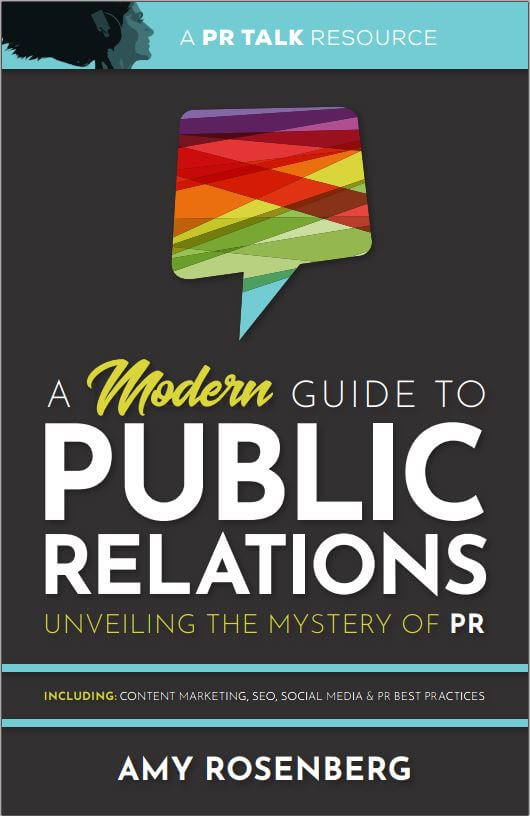Journalists have stood by in trepidation watching newsrooms shrink for years. Consumption has slowly shifted from the classic newspaper delivery, drive time chatter of the past to stories magically appearing in our phones with the touch of a button. The digitization of media hasn’t left PR professionals unscathed. Shrinking newsrooms mean less contacts for us to cultivate relationships with. Entire sections of newspapers and television news programs are being cut — sliming our chances for earned media placement even further.
If we didn’t think that was enough to contend with, we now have the country’s most powerful leader bringing to question the validity of all journalists, not just fly-by-the-night YouTube commenters. Donald Trump has frequently dismissed news as being “fake.”
The issues stem far beyond accusations of inaccurate reporting. News outlets like CNN were recently kept out of a White House news conference, while NBC, ABC, CBS, Fox News, and several smaller conservative media outlets were granted access. How can information be given to one type of media outlet and not the other? Isn’t fair access to information the point of a news conference?
Journalists are fighting for a seat at the table and PR pros need to back them up. The calling card of the PR industry has always been that journalism is more valuable than advertising from a credibility standpoint. Sure, an advertisement lets you perfectly sculpt your message, but it falls on the deaf ears of savvy and skeptical consumers. Not only is PR oftentimes more affordable than advertising, it is more effective. A nod from a credible news source packs more punch than any advertising money could ever buy.
A conversation I had with a colleague has me worried about the industry. She too started a PR firm with her husband years ago but left the press release writing and journalist schmoozing work of PR behind, favoring instead the creativity of advertising and the flexibility of content marketing. When I asked her why they weren’t focusing on PR anymore she said it was too hard. Not only weren’t there as many contacts to pitch, some of the newspapers she used to land stories in didn’t even exist anymore.
“Do you have access to a million dollars you can embezzle?” her husband jokingly stated his response when prospective clients inquire about getting on the first page of publications like the New York Times. “Because that is how much the hourly fee would cost to get that done,” he emphasized.
The Times also recently resorted to advertising rather than rely on its own journalistic messaging. A dramatic commercial highlighting the dangers of dubbing all news “fake news” premiered at the Oscars Sunday evening. Apparently one of the most revered newspapers in the world felt that their worth could no longer be displayed within their stories. The message being so important that it needed the control and impact of the wide audience that only advertising at the Oscars could bring.
There has been speculation as to whether or not the ad worked. If driving more subscriptions and garnering potential advertising interest was the point, I would say that it worked. Not that I have sales figures, but people are talking. It’s generating its own kind of PR coverage all by itself. Interestingly, Donald Trump’s visible reaction via Twitter calls more attention to the ad, driving more clicks, queries and conversations.
However, much like PR, the intended consequence of advertising doesn’t always have to be sales. If the point was to cement the validity of journalism and news, did the ad hit the mark? A recent article by Forbes begs to differ. Contributor Avi Dan writes that the Oscar audience for which it was written did not stray enough into the blue collar realm, instead playing to an already familiar, likeminded Hollywood audience. Not exactly following the guidance of what the Times Executive Editor, Dean Baquet, said after the election — that traditional news needed to break out of the confines of comfortable audiences to have an impact.
Dan called for the need to look past New York’s bubble and reach a different type of demographic, like the blue collar set. But who’s to say the blue collar demographic wasn’t watching the Oscars? Might this be another example of the educated judging those who are different? The commercial aired Sunday night. I don’t know too many construction sites or factories that are open at that time.
As far as the ad’s creative strategy goes, Dan’s point-of-view is intriguing. “The strategy is uninspired — it suggests the public should rely on the institution’s narrative…it is defensive, rather than visionary…The Times could be more mindful of the media’s ultimate role: providing a fair-minded elucidation, analysis and meaning for the information chaos that overwhelms even the smartest reader.” Dan points to a Guardian commercial that took this approach a few years ago by demonstrating how its reporters gather information from all sources to get to the truth.
Commentators (journalists who write columns or state their options on TV, radio and blogs) have been revered members of the free press for decades. There isn’t a lot of fact checking that goes into this style of journalism. Their opinions matter, as do everyone else’s. Opinions help people make decisions as important as where to raise their families or as trivial as where to eat dinner. Opinions are instrumental enough to help juries decide an accused criminal’s fate. We should all have access, not only to the truth, but to all kinds of opinions from the left and the right.
In a time when we’re unsure about what will happen next, we must be vigilant about obtaining fair access to information. Consumers then must decide if the information, coming from obscure websites or established organizations, is accurate. I personally trust my go-to news sources to turn over every leaf and uncover every stone on their way to accurate storytelling. This is of utmost importance not just to PR people who rely on the accuracy of the news to sell their worth, but for all of us.
Veracity can be the difference between delivering justice for all or creating hazy knowledge leading to ignorance.









